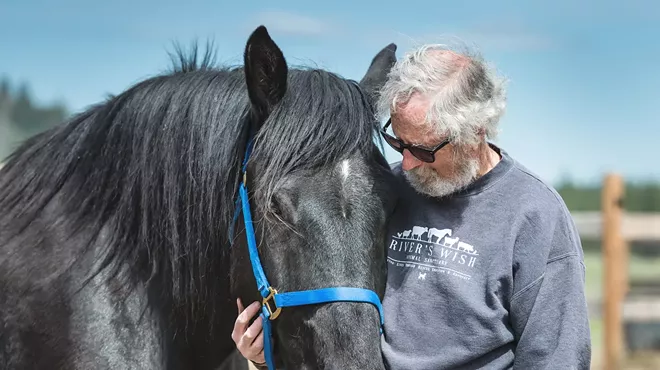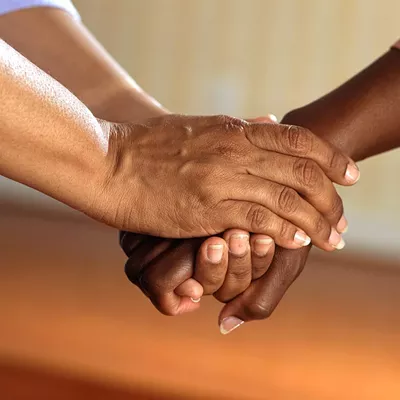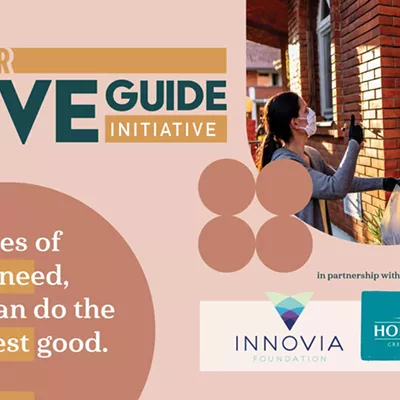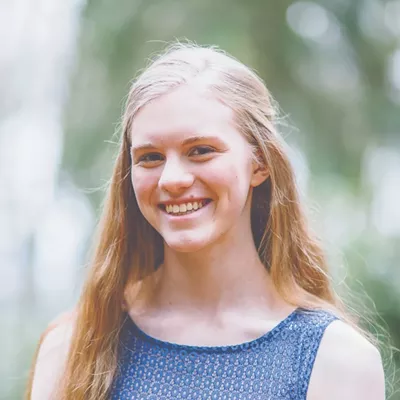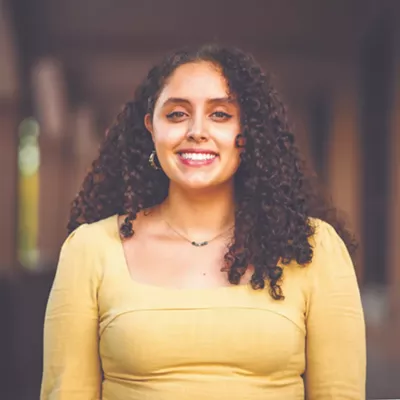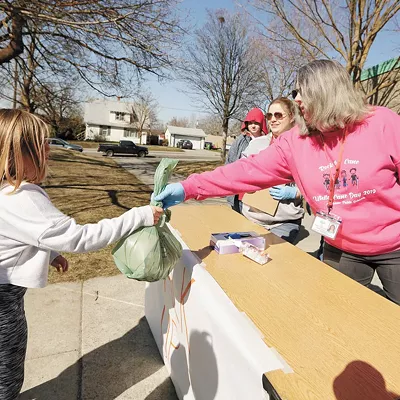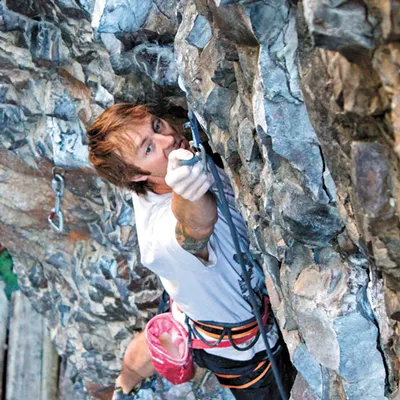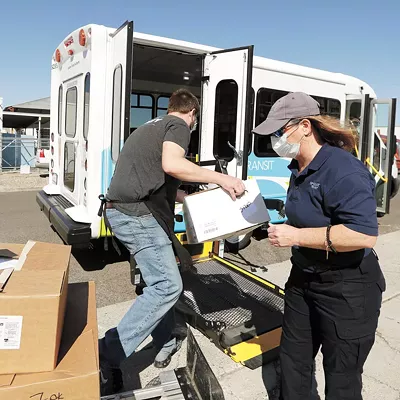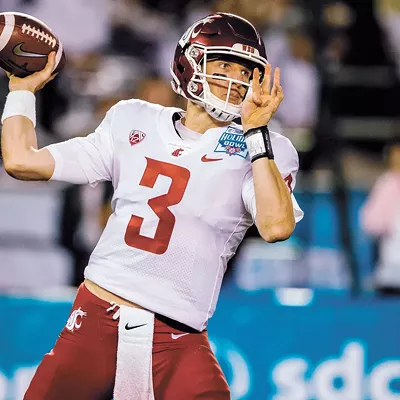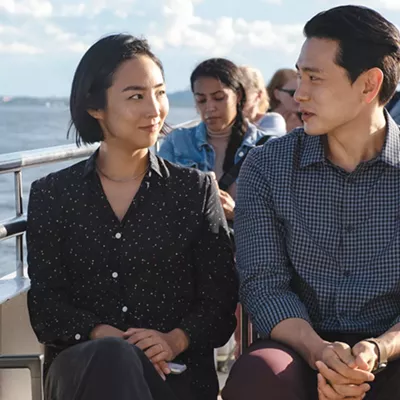
The old auto repair shop on East Fifth Avenue, tucked away in a residential neighborhood in the East Central area, has been an all-purpose building for decades. The garages took up one end of the building, while the rest held various office spaces over the years, as well as apartments, meeting spaces and artist studios.
Now it's home to the Carl Maxey Center, which will soon become an all-purpose building of its own. The nonprofit organization, named for the pioneering Spokane civil rights attorney who died in 1997, was formed in 2017, and its focus is to improve the wellbeing of, and offer resources to, the city's Black community.
Sandy Williams, who also edits and publishes the monthly newspaper Black Lens, was the driving force behind the center, and she tells the Inlander that she had her eyes on its current location when it first hit the real estate market. It was important for her, she says, to make sure the Maxey Center was in the East Central neighborhood, which was not only a hangout spot for Williams when she was younger but has long been one of Spokane's more racially diverse neighborhoods.
"It always felt like home," Williams says. "I went to the East Central Community Center when I was a kid. My brother did, and my daughter did. So it felt like there was no other place in Spokane that has the same feel for our community. So when we spotted that building on that particular street in that particular area, it felt like the right place for us."
The building, right down the street from the Black-owned restaurant Fresh Soul, was eventually purchased in 2018 primarily through community donations. (Williams says they earned $250,000 in just eight weeks.) The Maxey Center has since earned several grants, including from the Washington State Department of Commerce and the AHANA Business Association, and the building is currently undergoing a major remodel. Ceilings are being replaced and walls are being knocked down, and the hope is to have the space completed by the fall.
All of that will be nice, of course, but Williams says she could sense the positive communal energy before the renovations started.
"Even with this broke-down, leaky old building that had no heat, we were hosting events anyway," Williams says. "We were holding meetings for communities of color, groups that specifically wanted to be in a place that was led by people of color. So it didn't matter to them that the building hadn't been remodeled — they just wanted the space."
The Carl Maxey Center currently has two part-time employees and five board members, including board vice president Rev. Walter Kendricks and board president Betsy Wilkerson, who also serves on the Spokane City Council. The organization is also putting together an advisory committee, Williams says, and has already hosted focus groups and open forums to get a sense of what the community wants from the center, which will address the racial disparities in Spokane, where Black people make up 2 percent of the population.
"If you look at education, justice, employment, at housing, at health care — there are racial disparities in terms of how Black people are being treated, and the disparities negatively impact our community, Williams says. "The intention of the center is to be a place that focuses specifically on uplifting Black people, and coming up with solutions and programs and ideas that come from within the community to serve us."
It's also important for Williams to continue the legacy of Carl Maxey, who was the first African-American person to practice law in Spokane. His life leading up to his law career is enough to fill multiple biographies: He was an orphan, a championship boxer, a military medic, a figure on the forefront of the civil rights movement. While he was practicing law, he was a nominee for Washington state's Supreme Court, and became a figure both beloved and polarizing, depending on who you asked.
But one thing's for certain: Maxey's primary focus on cases concerning racial injustice and prejudice made him a hero to many. So many of the problems that Maxey fought against are still prevalent today, and Williams says she often thinks about what Maxey would think about the current state of the country.
"I imagine that he would sort of be on the forefront of a lot of issues that we're working on," she says, "challenging racial disparities that are still here. ... I feel like, in a way, we're sort of continuing work that he did, and that makes me feel really good."
Although Maxey's name will soon be emblazoned in big letters on the side of his namesake community center, Williams says she already notices the late leader's influence everywhere, particularly when she walks around in her Carl Maxey Center T-shirt.
"I can't wear the shirt without being stopped by somebody who tells me about the impact that he had," Williams says. "He was their attorney or he was the attorney for a family member or friend, or somebody worked with him. So that's been fascinating. I knew he had a presence in Spokane, but I did not know to what extent it was." ♦



